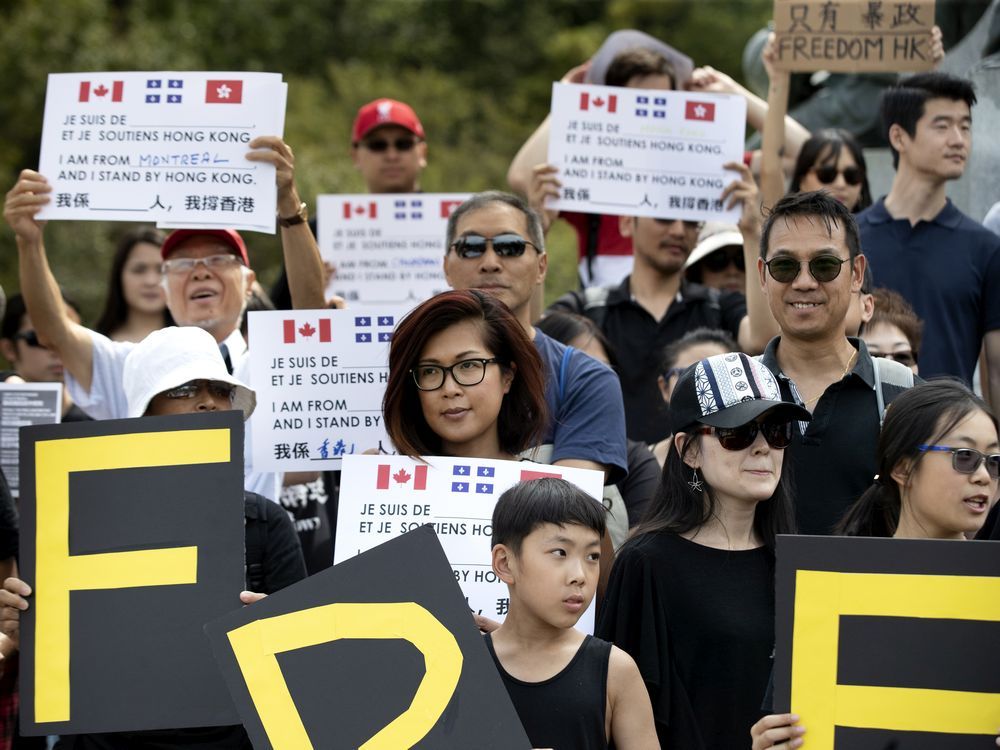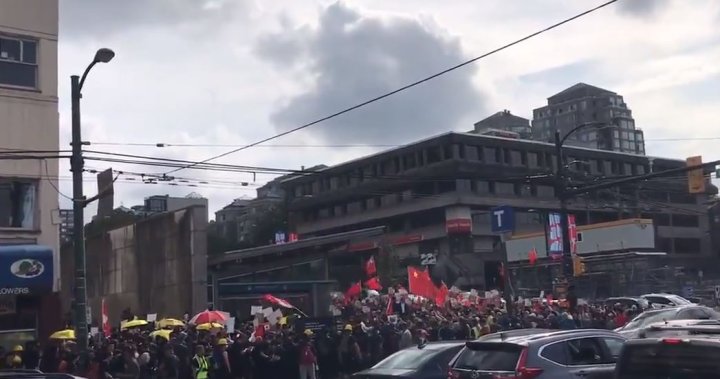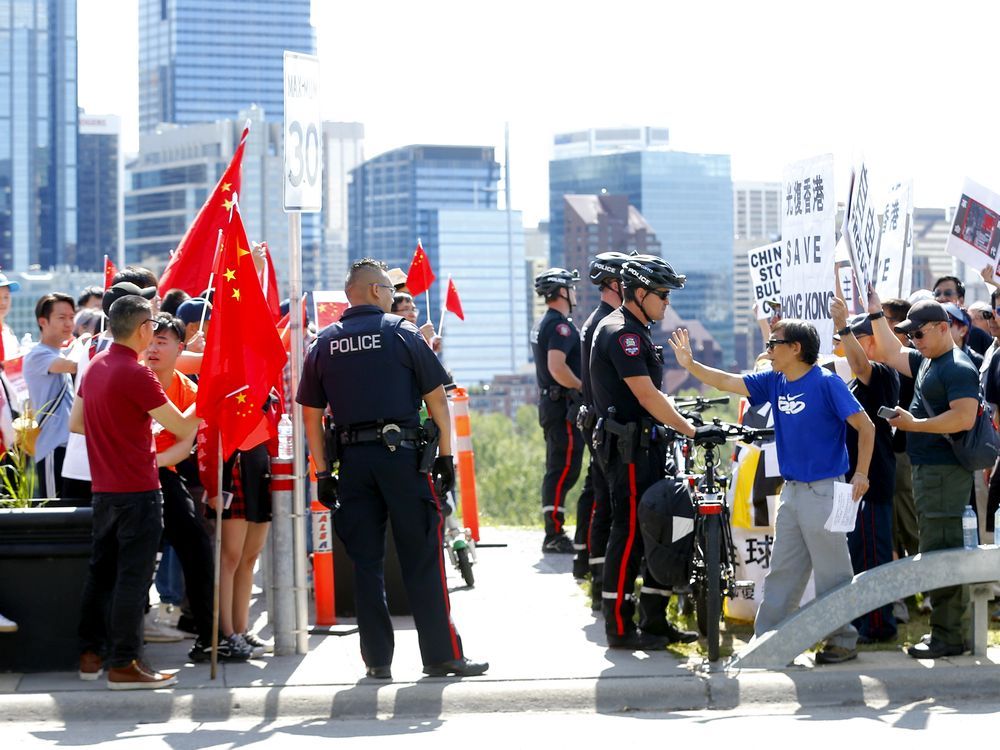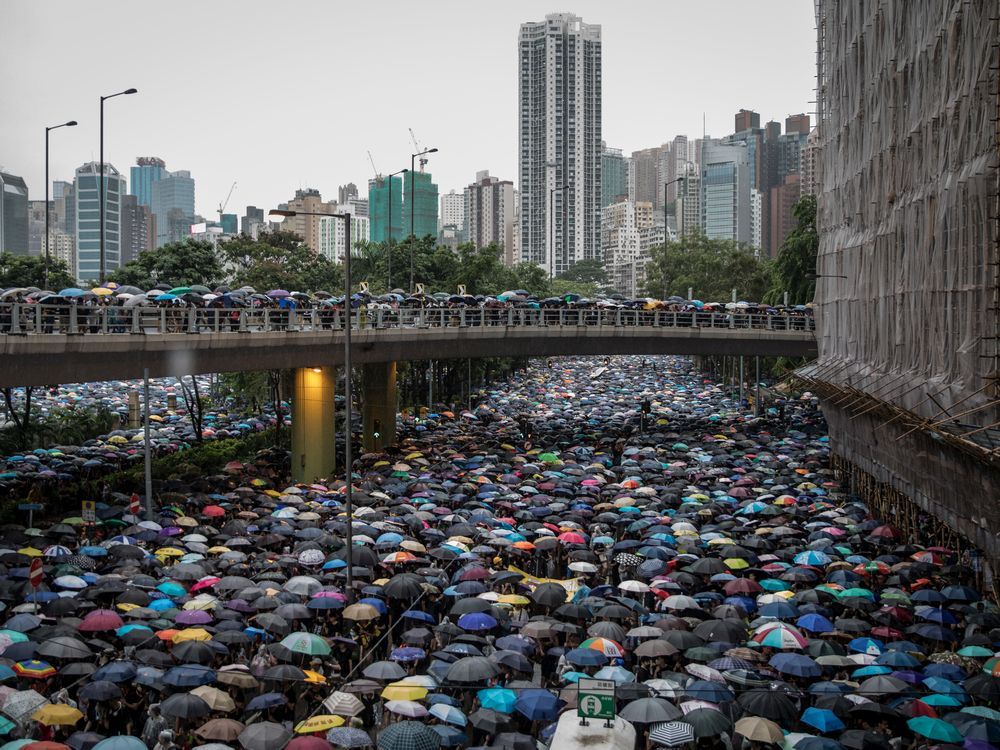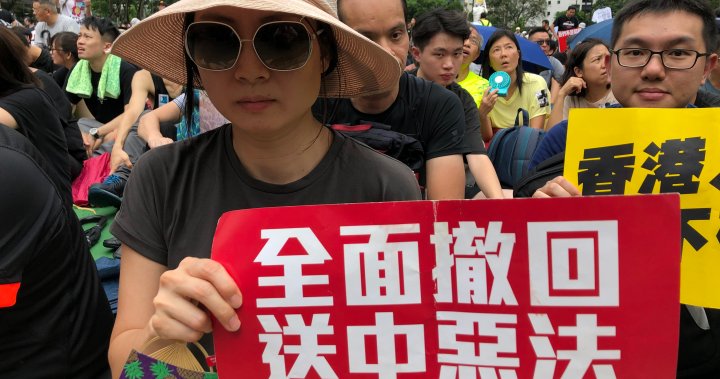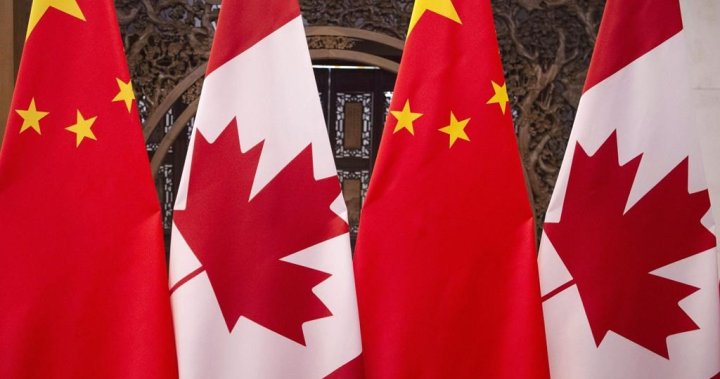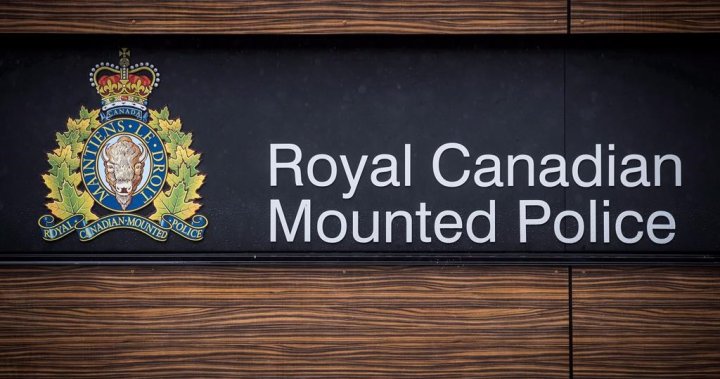Solidarity protests[edit]
On 9 June, at least 29 rallies were held in 12 countries with protesters taking to the streets in cities around the world with significant Hong Kong diaspora, including about 4,000 in London, about 3,000 in Sydney and further rallies in New York City, San Francisco, Los Angeles,
Boston,
Toronto, Vancouver, Berlin,
Frankfurt, Tokyo,
Perth,
Canberra,
Melbourne,
Brisbane and
Taipei.
[275][276] I
n one of the biggest overseas protests, hundreds of demonstrators made of mostly Hong Kong immigrants filled the streets outside the Chinese consulate-general in Vancouver with yellow umbrellas, referencing the
2014 Occupy protests, and chanted against the extradition law. More than 60 people gathered outside the
White House in Washington to protest against the bill.
[276]
On 12 June, representatives from 24 Taiwanese civic groups, including
Taiwan Association for Human Rights, protested outside Hong Kong's representative office in
Taipei, whilst shouting slogans such as "Taiwan supports Hong Kong."
On 16 June, 10,000 Hong Kong students and Taiwanese supporters held a peaceful sit-in at the
Legislative Yuan in
Taipei to support the protests in Hong Kong.
[277][278] In
Auckland and
Adelaide, around 500 people gathered to demand Chief Executive Lam to withdraw the bill and apologise for her actions.
[279] On 17 June, 1,500 people protested outside the Chinese Consulate in Vancouver.[280]
On 23 June, 5,000 people held a rally in Taipei against Hong Kong's extradition bill.
[281] On 14 July a "Sing for Hong Kong" event was held in London.
[282][283] There was a clash between pro-democracy and pro-China supporters at the
University of Queensland in
Brisbane on 24 July.
[284][285] In response to the incident, the Chinese Consul-General in Brisbane, Xu Jie, reportedly praised Chinese students for confronting "anti-China separatist" protesters, prompting the Australian Foreign Minister
Marise Payne to warn foreign diplomats not to interfere in free speech and protests in Australia.
[286][287]
On 3 August, further solidarity protests occurred in UK cities including London, Manchester and Edinburgh, as well as Canadian cities of
Montreal, Vancouver, Toronto, Winnipeg, Halifax, Ottawa and Calgary.
[288][289][290] On 10 August, around 100 Hong Kongers, Tibetans, Taiwanese, Uygurs, overseas Chinese and other New York residents held a rally outside the Chinese consulate.
[291] Over the 16–18 August weekend, solidarity pro-democracy protests were held in London, Edinburgh, Melbourne, Sydney, Adelaide, Brisbane, Taipei, Berlin, Paris, Boston,
Calgary, Vancouver and Toronto.
[292][293][294][295][296][297][298][299]
On 30 August, hundreds of Tibetans marched in India's capital in a show of solidarity with protesters in Hong Kong. Taking a cue from them, many of the Tibetans carried umbrellas and wore black as they joined the
New Delhi demonstration organised by the Tibetan Youth Congress.
[300]
Protesters in the concurrent
2019 Catalan protests have claimed inspiration from, and solidarity with the Hong Kong protests.
[301][302]
On 13 November,
Xi Jinping visited Brazil. A few Hundred Brazilian protestors gathered in
Brasilia to show their support to the Hong Kong protestors.
Counter-protests[edit]
Simultaneously, counter-protests organized by pro-China and overseas mainland Chinese groups occurred in several cities in the Western hemisphere, including Sydney, Melbourne,
Ottawa, Toronto, London, and Paris;
some of which led to confrontations between the opposing groups and arrests.
[303][304][305][306][307] On 2 October 2019, a confrontation between rival student protesters at the
University of Sheffield led to the arrest and suspension of one student.
[308]
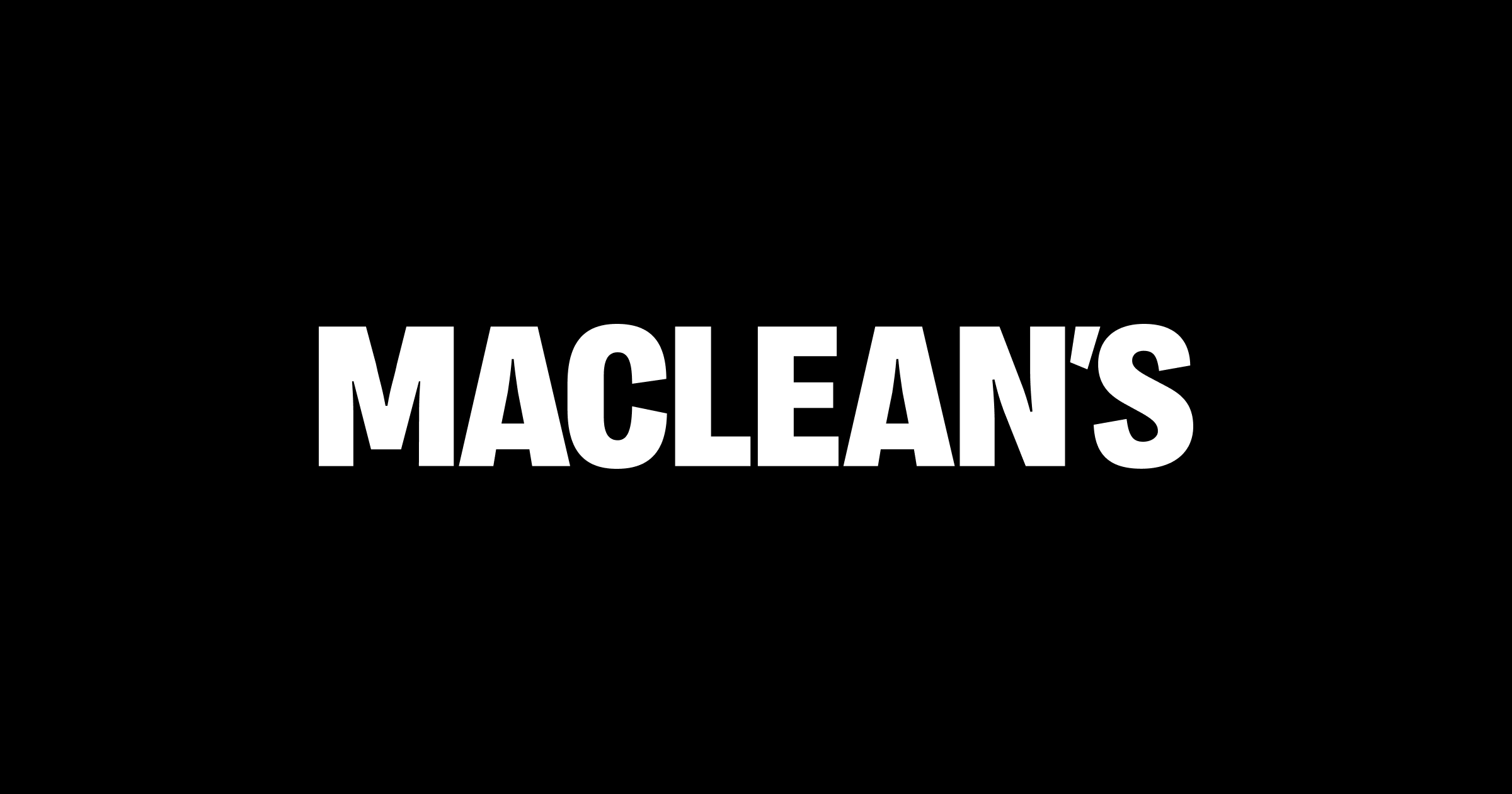
macleans.ca
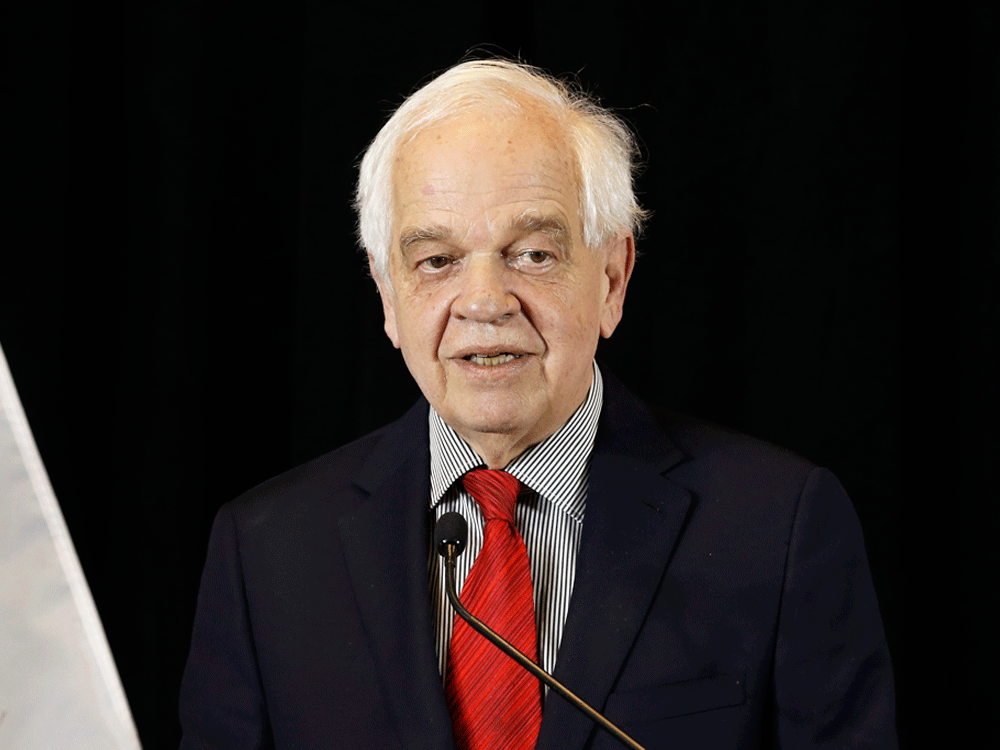
nationalpost.com


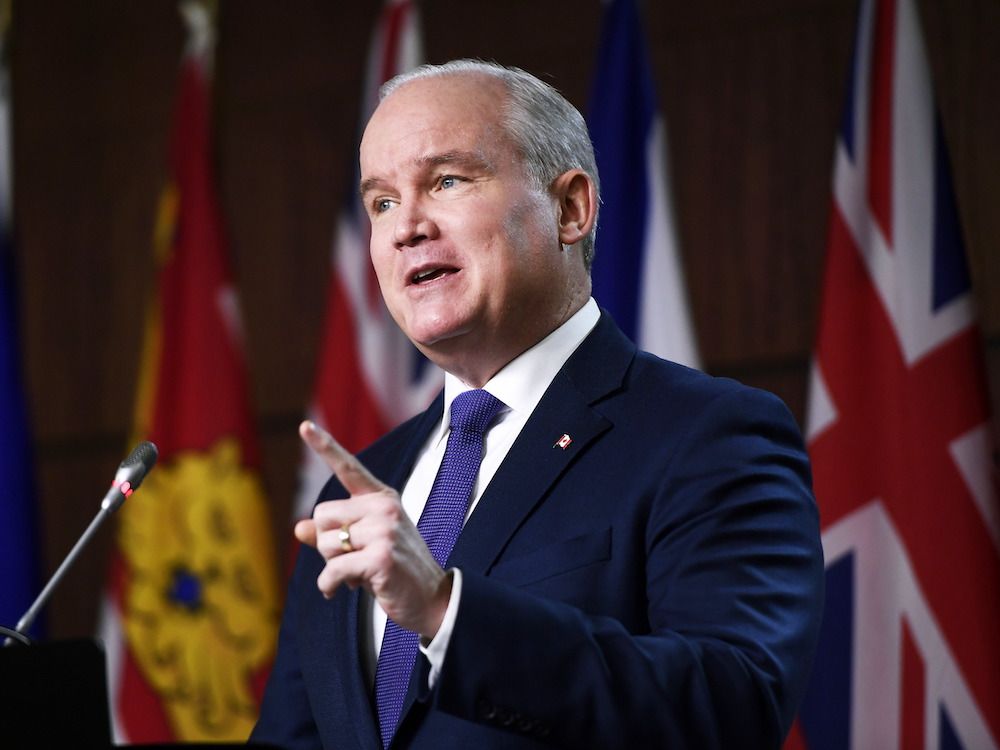
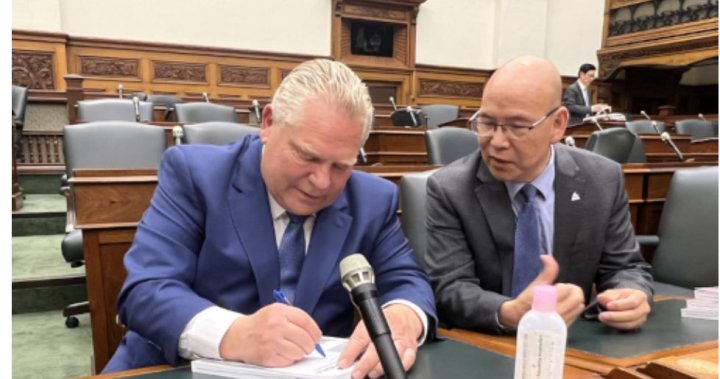


:format(webp)/https://www.thestar.com/content/dam/thestar/vancouver/2019/06/15/hundreds-gather-in-vancouver-to-protest-police-violence-in-hong-kong-as-government-puts-controversial-extradition-bill-is-put-on-hold/van_hk_extradition_1.jpg)


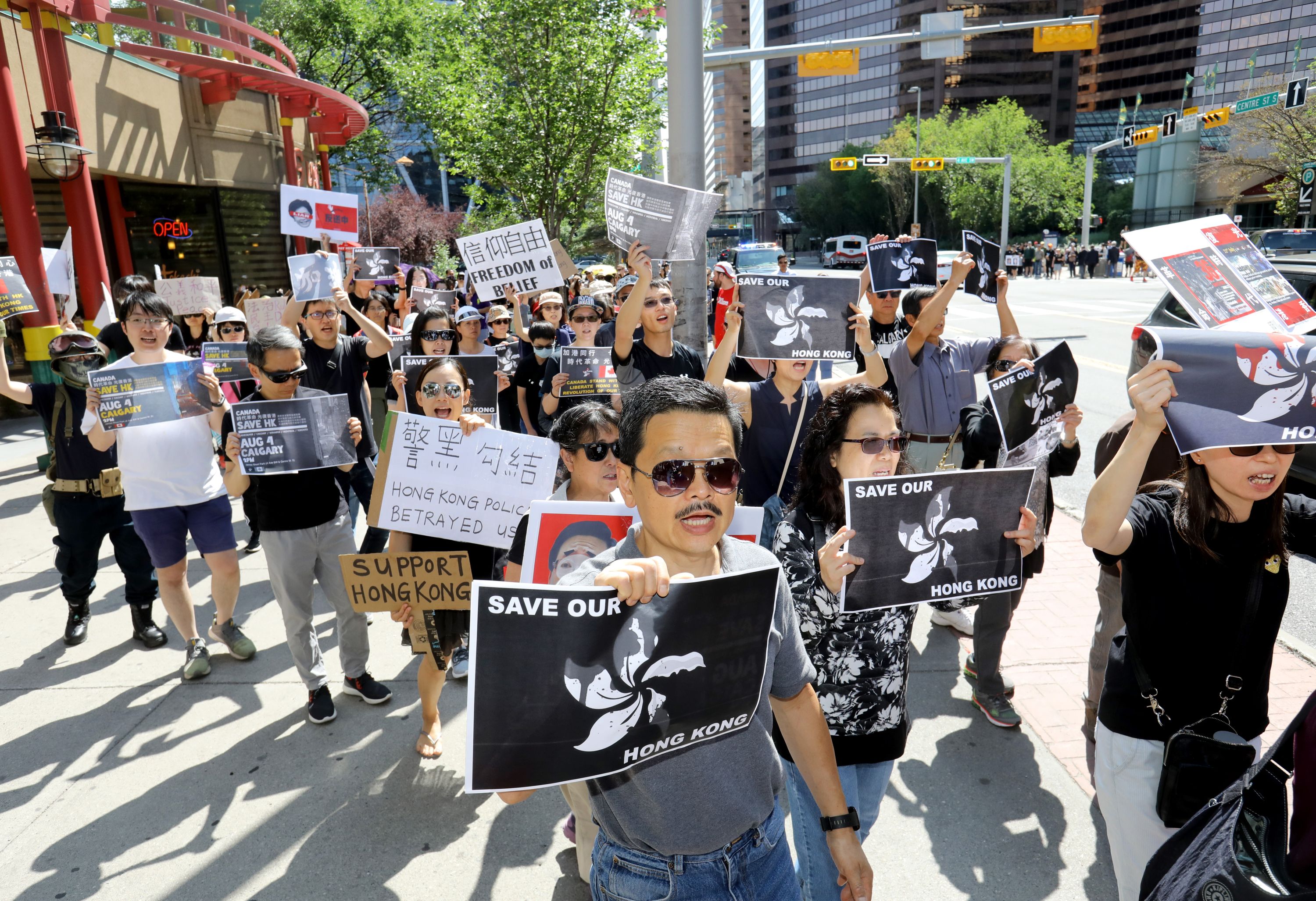
:format(webp)/https://www.thestar.com/content/dam/thestar/news/gta/2019/08/04/free-hong-kong-protesters-rally-in-toronto-over-extradition-bill/_1_hong_kong_protest_signs.jpg)
